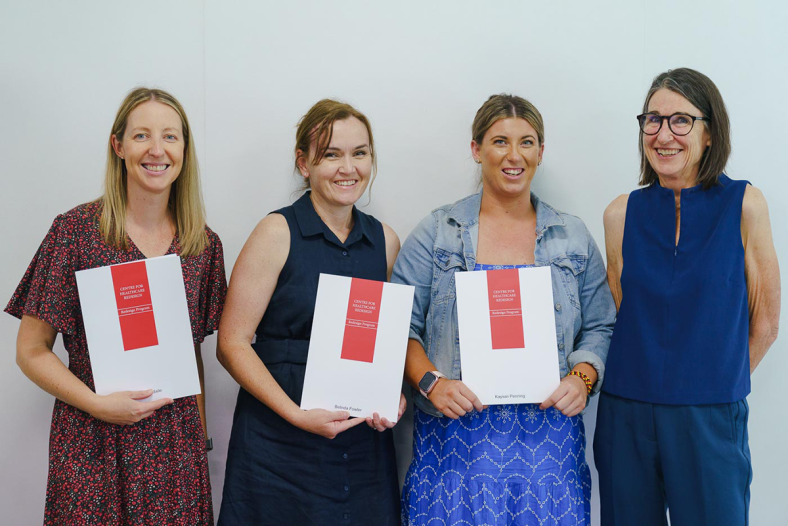Aiming to improve the follow-up care provided to First Nations people after they return home from hospital, innovators Anna Esdaile, Belinda Fowler and Kaysan Penning embarked on a project that has so far reduced re-presentation to hospital, improved referral completion within 48 hours and decreased the number of people who cannot be contacted following referral.
Kaysan Penning, Aboriginal Health Worker with Primary Care and Community Health says, “First Nations people living with chronic disease are more likely to be re-admitted to hospital within 28 days compared to non-Aboriginal people. So when we began the project, we knew it was particularly important to ensure the 48 hour Follow Up Service was effectively servicing all First Nations people referred in the Penrith local government area.”
At the commencement of the redesign, the trio found that only 47% of clients referred to the service could be contacted within 48 hours, with 32% of clients unable to be contacted at all. Data also showed that one in ten clients re-presented to Nepean Hospital within 28 days of discharge.
A lack of cultural connection to the service and worry that they might be asked to return to the hospital were reported by clients as barriers that affected participation in the service.
To improve the service on offer for First Nations people and increase cultural connection to the service, the redesign project renamed the 48 Hour Follow Up Service to Walanga Gul, which means ‘follow up’ in Darug language.
“This was an important part of the redesign that immediately identifies it as a First Nations service and also lets our clients know that we’re just calling to have a yarn after their hospital visit,” says Kaysan.
“Our redesign also identified a lack of culturally appropriate patient experience measure tools available to collect client feedback, so while updating the existing model of care, we worked with the local community to co-design a culturally appropriate patient reported experience measure. We also enhanced the use of SMS to support contact with clients.”
While the project continues in the implementation phase, the redesign and rebranding has so far increased completion of referrals within 48 hours, increased contact with clients and decreased hospital representations within 28 days of discharge.
Primary Care and Community Health staff Anna Esdaile, Belinda Fowler and Kaysan Penning undertook this redesign as part of their studies with the Agency for Clinical Innovation’s Centre for Healthcare Redesign and recently graduated with a Graduate Certificate (Clinical Redesign), awarded by the Agency for Clinical Innovation in partnership with the University of Tasmania.
